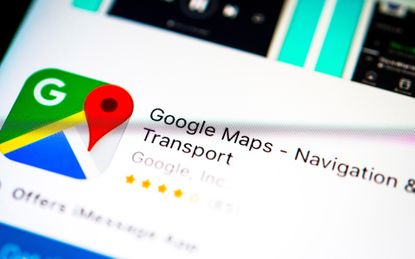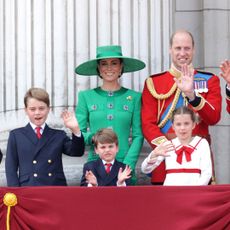Ask Google for your closest abortion clinic, and you might end up in a pro life centre
This report from the US is causing a lot of controversy, and Google is now 'looking into the issue'...

This report from the US is causing a lot of controversy, and Google is now 'looking into the issue'...
We've all relied on Google to get us from A to B, right?
Whether playing visitor in an unknown city or just looking for a local restaurant with a half-decent rating on TripAdvisor, it's a 21st Century tool that's become invaluable to our daily lives. And, most importantly, we trust it to give us the right information.
This is why we're troubled by reports that some women in the US are unknowingly being directed to anti-abortion clinics after searching for a place to terminate an unwanted pregnancy.
According to a worrying report by Gizmodo, Google Maps has been responding to the question 'Where can I get an abortion near me?' with directions to local 'crisis centres'. Instead of offering medical services, these organisations actually provide counselling - often encouraging women to 'choose life' instead of going through with an abortion.
The investigation also discovered that these particular centres - known as CPCs - were being promoted in Google search results over and above actual abortion clinics in up to 20 places in the United States.
What's more, when Gizmodo put the search to the test themselves, it was reported that out of the top five results, only one was a centre that offered an abortion service.
Marie Claire Newsletter
Celebrity news, beauty, fashion advice, and fascinating features, delivered straight to your inbox!
The report also delved into the merky waters of advertising, looking at the complex relationship between Google and anti-abortion centres who had a history of paying for a top search result in order to try and drive people away from considering an abortion. Apparently 79% of the time, those looking to find an abortion clinic were actually directed to a CPC.
Google removed the Ads, but this clearly hasn't stopped the anti-abortion brigade from trying to pursue other ways to skew search results and spread their message.
‘It’s definitely a problem that Google should be aware of and address,’ Molly Duane, staff attorney with the Center for Reproductive Rights, told The Guardian. ‘The internet should be a place where you can get full information, not where women are deliberately deceived about their options.’
Google has since responded to the claims, with spokesperson Liz Davidoff stating: ‘We’re looking into the issues flagged.
'We strive for business results that are relevant, accurate and help users find what they’re looking for.’
Let's hope that a solution is found quickly so that these vulnerable women, who are undoubtedly already facing a tough and life-changing decision, are given the care and service that they are actually seeking.
-
 A rare interview with a former royal aide about working for the Mountbatten-Windsors is going viral
A rare interview with a former royal aide about working for the Mountbatten-Windsors is going viralBy Jenny Proudfoot
-
 Fans are convinced that Lily Collins just dropped a major clue about Emily in Paris season 4
Fans are convinced that Lily Collins just dropped a major clue about Emily in Paris season 4By Jenny Proudfoot
-
 Prince William's hilarious words about singing with Taylor Swift are going viral
Prince William's hilarious words about singing with Taylor Swift are going viralBy Jenny Proudfoot